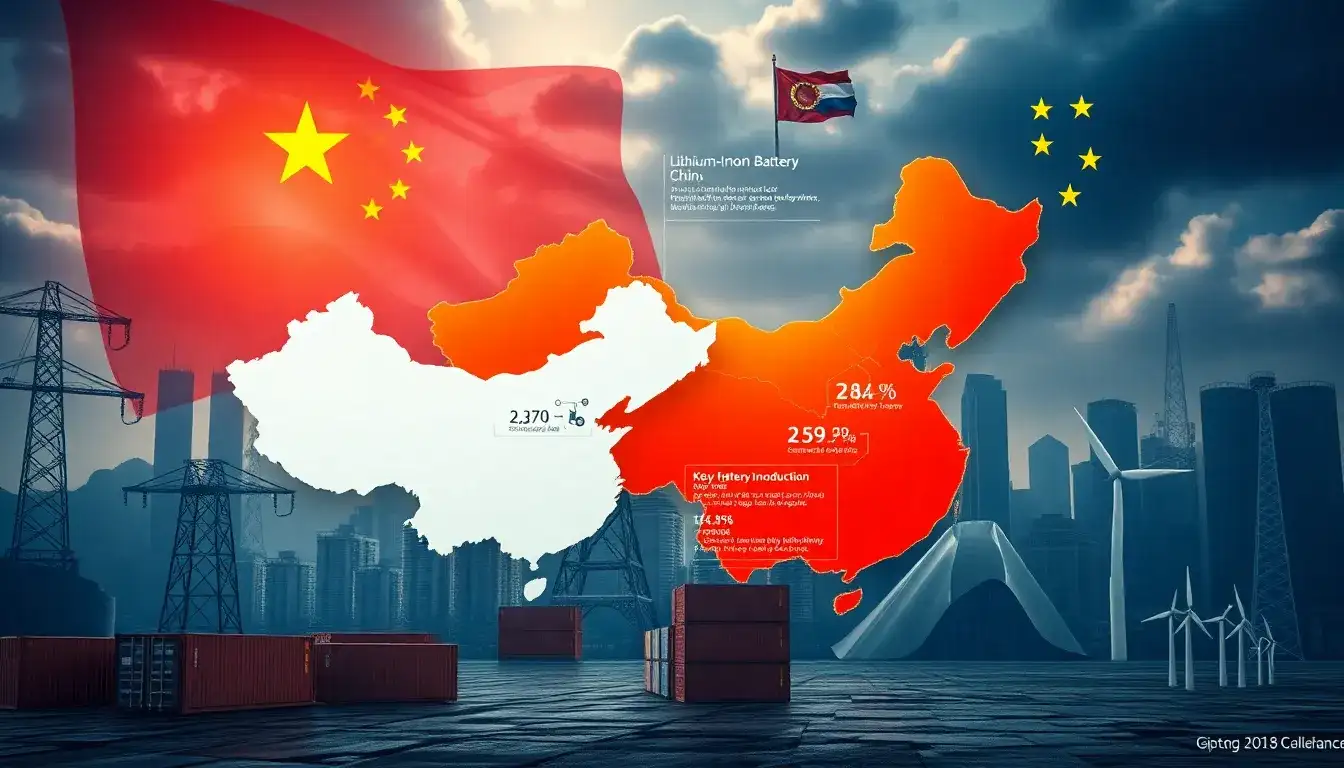
Producing batteries for electric vehicles necessitates a complex and globally interconnected supply chain. A recent study conducted by researchers from the Fraunhofer Research Institution for Battery Cell Production (FFB) and the University of Münster has investigated the ownership structures and geopolitical dependencies within this supply chain. The findings reveal that China dominates nearly the entire value chain of lithium-ion batteries, overseeing everything from raw material extraction to battery production. This dominance extends to both domestic and international production facilities, leaving no other region with comparable control over the entire battery supply chain.
Lithium, cobalt, nickel, and manganese are essential for the manufacture of battery cells. For instance, large battery packs, such as those found in a Tesla Model S Plaid, contain approximately 122 kilograms of these mineral raw materials. However, only a limited number of countries, including China, Australia, and the Democratic Republic of the Congo, possess the necessary resources in substantial quantities to support the growth of electromobility. The challenge lies in the fact that mineral raw materials represent the initial step in the supply chain for battery cell production, and Europe is almost entirely reliant on imports, according to Professor Simon Lux, Director of Fraunhofer FFB.
The study emphasizes China’s overwhelming control over the battery supply chain. It details the ownership landscape of mines, refineries, and production facilities, illustrating that China leads the value chain in lithium-ion battery production, with the notable exception of manganese. Notably, China produces more than 98 percent of lithium iron phosphate active materials, making Europe directly dependent on this more economical battery chemistry. Professor Lux warns, “China’s growing dominance over raw materials jeopardizes the future of European electromobility. This dependency renders Europe vulnerable; geopolitical tensions or export restrictions could result in severe economic repercussions amounting to billions in losses.”
In response to China’s dominance, both Europe and the USA are intensifying their efforts to secure greater control over the lithium-ion battery supply chain by acquiring mines and refineries. While the USA ranks second worldwide in ownership shares of lithium mining, Europe holds a relatively minor stake. Conversely, the situation differs for nickel and cobalt, where Australia, Indonesia, and the Democratic Republic of the Congo are critical mining regions. For instance, 74% of the world’s lithium originates from Australia and Chile, but the largest shares of production are held by Chinese (29%) and US (26%) companies. Europe, however, lacks significant lithium interests abroad.
These developments underscore the escalating global competition for critical raw materials and the strategic restructuring of value chains. To mitigate dependence on China, the study suggests that Europe could pursue several strategies. These include investing in the expansion of domestic refinery capacities, fostering strategic raw material partnerships, and enhancing the local circular economy.
The joint research by Fraunhofer FFB and the University of Münster relies on comprehensive data analysis, aimed at providing a detailed understanding of the current power dynamics within the industry. The study serves as a crucial resource for understanding the implications of China’s position in the lithium-ion battery supply chain and offers insights into potential pathways for Europe to enhance its autonomy and security in this critical sector.
Original article by NenPower, If reposted, please credit the source: https://nenpower.com/blog/chinas-dominance-in-the-global-lithium-ion-battery-supply-chain-implications-for-europe/


